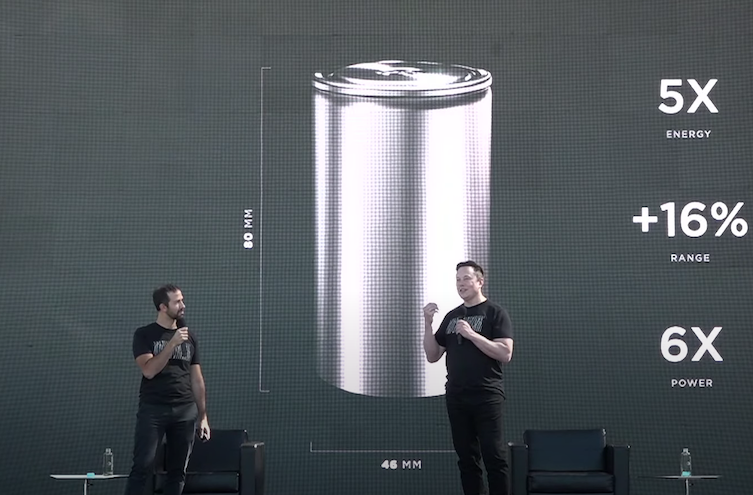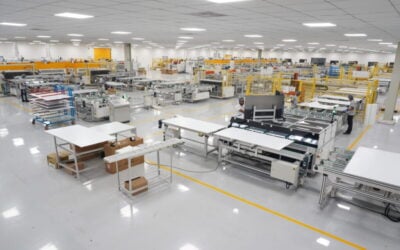
Lack of industrial policy and strategy, and vulnerability to supply chain disruption are among the key things holding back the US’ position in global battery manufacturing.
Those are among the key takeaways of a document produced by four US federal government departments that banded together last year to figure out how the domestic value chain for advanced battery technology — particularly lithium-ion — can be improved and wean sectors including electric vehicles (EVs) and energy storage systems (ESS) off an almost total dependency on imports.
US President Joe Biden has been vocal on the need to establish advanced battery supply chain and manufacturing capabilities within the country, for reasons that include national security and industrial competitiveness, as well as fighting climate change and creating well paid employment.
A few days ago, the conclusions of a 100-day review of supply chains for critical materials and components for batteries that the President ordered came in, recommending a raft of immediate actions to support both supply of and demand for advance batteries made in the US.
Try Premium for just $1
- Full premium access for the first month at only $1
- Converts to an annual rate after 30 days unless cancelled
- Cancel anytime during the trial period
Premium Benefits
- Expert industry analysis and interviews
- Digital access to PV Tech Power journal
- Exclusive event discounts
Or get the full Premium subscription right away
Or continue reading this article for free
However, even before Biden took office, late last year four federal government agencies: the Department of Energy, Department of Commerce, Department of Defense and Department of State banded together and formed a Federal Consortium on Advanced Batteries (FCAB). It seeks to find ways to capture opportunities, support domestic industry and avoid being left behind in an industrial race in which China currently holds a commanding lead.
The FCAB produced a report last week that it called a ‘National blueprint for lithium batteries’, which sets out a vision for the US and its partners to establish a secure battery materials and technology supply chain. Its ‘vision’ is to achieve this by 2030, furthering national aims of carbon and pollution-free electricity by 2035 and full net zero by 2050.
Consortium sets five goals
The FCAB’s blueprint sets five goals:
1. Securing access to raw and refined materials, as well as discovering alternatives for critical materials. Dependence should be reduced on scarce materials or materials with problematic supply chain issues like cobalt and nickel, while environmental and labour conditions for supplies of materials should be held to high standards.
2. Supporting the growth of materials-processing capabilities within the US to meet demand for battery manufacturing. Developing cost-competitive domestic materials processing for lithium battery materials would reduce reliance on international markets, while again, eliminating the need for critical materials like cobalt and nickel, as well as developing new and cheaper processes for making components like cathodes, anodes and electrolytes would enable future growth of the domestic industry.
3. Develop a federal policy framework to stimulate electrode, cell and battery pack manufacturing in the US: simultaneously stimulating demand for batteries while creating well paid jobs and a robust supply chain equitably and sustainably. The FCAB also emphasises the importance of research and development (R&D) in these areas.
4. Enabling reuse of batteries at the end of their life as well as recycling of critical materials at scale, creating a competitive value chain within the US. Recycling and reuse can mitigate scarcity of materials and enhance environmental sustainability as well as supporting a circular materials supply chain. As well as developing new low-cost methods for collecting, sorting, transporting and processing recycled lithium-ion battery materials, FCAB said a resilient market for reusing battery cells from EVs in applications like grid storage needs to be created.
5. Strongly support scientific R&D, education in STEM subjects and develop the US workforce.
The blueprint
FCAB’s blueprint would see the creation of an end-to-end value chain in lithium-ion batteries, from upstream mining and extraction of materials, to midstream materials processing and cell manufacturing, to downstream battery pack manufacture and end-of-life recycling and reuse.
As such it sets near-term and long-term objectives for each of the five goals outlined above. These include setting a cost reduction goal for battery cells at US$60/kWh, with the current benchmarked cost quoted at US$143/kWh, targeting 90% recycling rates for batteries in consumer electronics, EVs and ESS through creating incentive programmes, and achieving energy density of 500Wh/kg for those low-cost cells.
The report analysed strengths, weaknesses, opportunities and threats to the supply chain, highlighting access to capital and good R&D capabilities among the strengths, job creation and economic growth among the opportunities, the lack of current industrial policy and national strategy among the weaknesses and vulnerability to supply chain disruption and vulnerability to price hikes among the threats.
Last year the Department of Energy also published a roadmap for stationary energy storage, which was described as the US government’s first “comprehensive strategy” on energy storage, identifying cost and performance targets to be met in the coming years including emphasis on the development and scale up of low-cost and long-duration energy storage technologies.
The FCAB ‘National blueprint for lithium batteries 2021-2030’ can be found here.





![burns and mcdonnell GA_Battery_Storage_003[84] The maturing industry has allowed EPCs to "get more creative with engineering technology and construction equipment to help streamline operations in the field," Julian Hoover says. Image: Burns & McDonnell](https://www.energy-storage.news/wp-content/uploads/elementor/thumbs/burns-and-mcdonnell-GA_Battery_Storage_00384-rgklnp65oz5okwj4j525f5bdz9y57j338jh6zpqdvo.jpg)